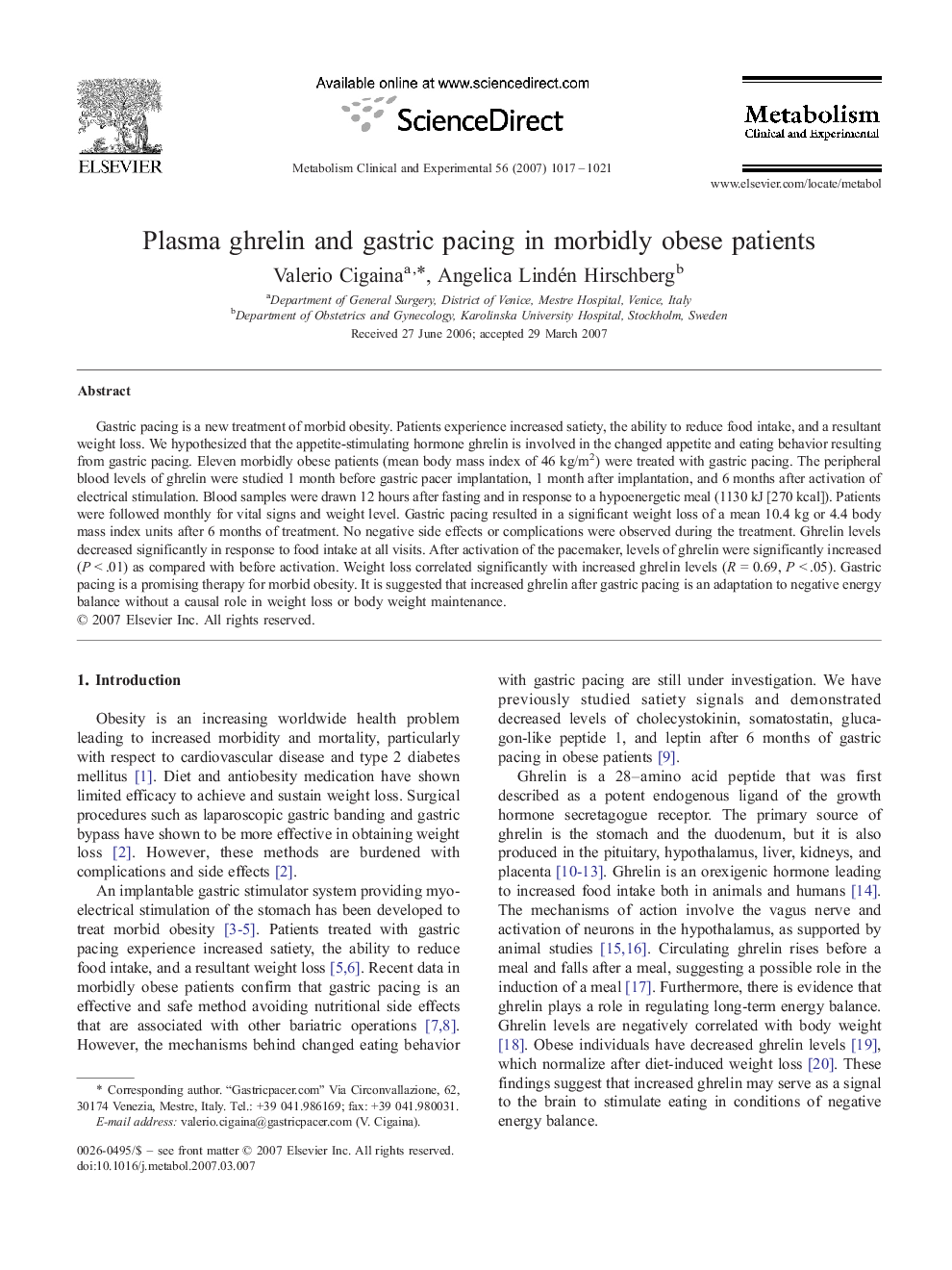| کد مقاله | کد نشریه | سال انتشار | مقاله انگلیسی | نسخه تمام متن |
|---|---|---|---|---|
| 2807386 | 1157163 | 2007 | 5 صفحه PDF | دانلود رایگان |

Gastric pacing is a new treatment of morbid obesity. Patients experience increased satiety, the ability to reduce food intake, and a resultant weight loss. We hypothesized that the appetite-stimulating hormone ghrelin is involved in the changed appetite and eating behavior resulting from gastric pacing. Eleven morbidly obese patients (mean body mass index of 46 kg/m2) were treated with gastric pacing. The peripheral blood levels of ghrelin were studied 1 month before gastric pacer implantation, 1 month after implantation, and 6 months after activation of electrical stimulation. Blood samples were drawn 12 hours after fasting and in response to a hypoenergetic meal (1130 kJ [270 kcal]). Patients were followed monthly for vital signs and weight level. Gastric pacing resulted in a significant weight loss of a mean 10.4 kg or 4.4 body mass index units after 6 months of treatment. No negative side effects or complications were observed during the treatment. Ghrelin levels decreased significantly in response to food intake at all visits. After activation of the pacemaker, levels of ghrelin were significantly increased (P < .01) as compared with before activation. Weight loss correlated significantly with increased ghrelin levels (R = 0.69, P < .05). Gastric pacing is a promising therapy for morbid obesity. It is suggested that increased ghrelin after gastric pacing is an adaptation to negative energy balance without a causal role in weight loss or body weight maintenance.
Journal: Metabolism - Volume 56, Issue 8, August 2007, Pages 1017–1021